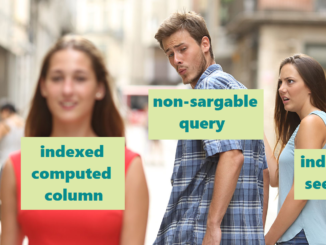
T-SQL Tuesday: The last ticket I closed
For this month’s T-SQL Tuesday, Brent Ozar (blog|Instagram) asks us to describe the most recent ticket we closed. “We had a pretty significant wait spike…” The literal last ticket I closed was “please run this script in production…”, and I don’t think it would be … [Read More]








